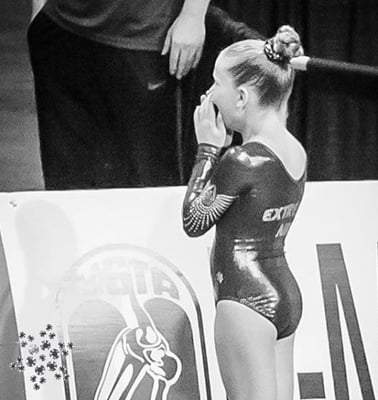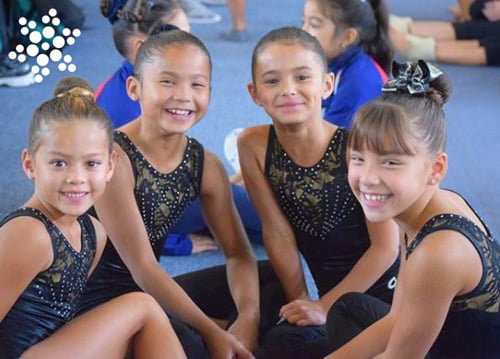Winning and Losing Takes Grace and Skill
Every gymnast will at some point have to face winning and losing. Learning how to win humbly and lose gracefully is very important for any athlete, but especially for gymnasts. If a gymnast never learns the "right way" to win and lose, they will face struggles in their gymnastics career. These gymnasts don't make good teammates who celebrate their friends' wins despite their own loss, or humble their own win to support a friend through a bad loss. The art of a graceful win and loss is extremely important to being a great gymnast. We wanted to share some tips and tricks on winning, and losing, gracefully in gymnastics.
Gymnasts who start competing at a young age have more experience with winning and losing, and so are less likely to worry about a loss or brag about a win when they're older. If your child is interested in competing at a young age, let them! More experience with winning and losing will only help them later in life.

If you want your gymnast to be a good sport, you must model that behavior for them. Children look to their parents and other trusted adults to learn how to react in different situations. If they don't place at a gym meet, and you react negatively ("You deserved to win"; "That girl shouldn't have won"), then your gymnast will react the same way next time. This negative behavior has no place in the gym. Instead of being negative, focus on the good things your gymnast did at the meet ("You finally landed your vault"; "You tried the very best you could today"). This way, your gymnast will spend the next meet trying even harder to improve her skills and will focus on celebrating the good rather than dwelling on the bad.
Gymnastics is a sport with teams, but each team member competes by them self to get their own individual score. Encourage your gymnast to support and encourage their teammates. It's easy for a gymnast to be jealous of their teammates for scoring and placing higher than them, or to brag about placing the highest on the team. This behavior can cause rifts between team members and can break friendships. Instead, teach your gymnast to celebrate team wins as much as their own victories. This support will build the entire team up and strengthen their friendships, making them a greater team in the end.
Coaches also need to help their team develop these positive reactions to winning and losing. They do a great job of teaching our gymnasts how to master skills in the gym, and their teams look up to them for guidance. Coaches also need to teach their gymnasts life skills, and one of those skills is winning and losing gracefully.
In the gym, coaches can set up "mock meets" to simulate a regular meet and allow their gymnasts to practice their routines without actually competing in a real meet. This is also a great opportunity to teach grace in winning and losing. Teams can be divided into smaller groups, and each can be assigned a color (one team wears red leotards on the mock meet day, one team wears blue leotards, etc.). Coaches can teach gymnasts proper etiquette when competing against other teams, and show them how to be good sports in a casual, fun atmosphere.

Communication is so important in teaching a gymnast about winning and losing gracefully. Talk to your child about how bragging about their win might make another gymnast feel. Teach them that their friends and teammates would rather celebrate everyone's personal wins and support each other's losses than brag about their wins or deal with their losses on their own. Coaches can sit down with the entire team and have a conversation about being good sports and dealing with wins and losses in a positive way. Once the team understands good sportsmanship, they will all be better gymnasts, and people, because of it.









